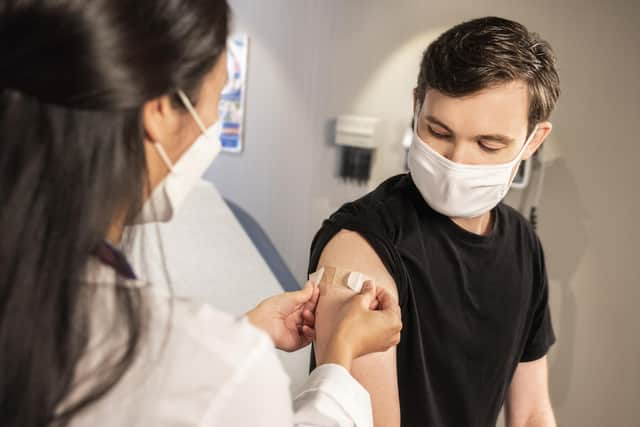New Covid-19 variant detected in Northern Ireland, confirms Public Health Agency
and live on Freeview channel 276
According to the latest data from the Public Health Agency (PHA), the variant BA.2.86 – which continues to spread in the UK – has been provisionally identified in a small number of cases in Northern Ireland.
However, it is accepted that there are likely to be more cases as not everyone who has Covid-19 is tested.
Advertisement
Advertisement
Following the identification of the new variant, the PHA took the precautionary decision, in line with the rest of the UK, to bring forward the start date of this year’s autumn flu and Covid-19 vaccination programmes.


Health experts say that evidence to date does not indicate that the new variant causes more serious disease or is more easily spread than other recent variants that have been in circulation.
Dr Declan Bradley, deputy director of public health at the PHA said the virus which causes Covid-19 is constantly evolving with new variants arising frequently, adding that “vaccination remains a vital defence against it”.
Rachel Spiers, immunisation and vaccination programme manager at the PHA, said: “The vaccination programme began last month here in Northern Ireland. Vaccines are the best defence against Covid-19 and flu. They provide good protection against hospitalisation and death. If you’re eligible for vaccination you should take up the offer as soon as you are invited.”
Advertisement
Advertisement
The PHA urges people who are eligible for vaccination to make themselves aware of their own GP surgery’s, community pharmacist’s or trust’s vaccination arrangements.
The agency also encourages everyone to be mindful of the steps they can take to reduce the spread of winter illnesses.
"In addition to getting vaccinated if you are eligible, if you have symptoms of a respiratory infection, you are advised to avoid coming into unnecessary contact with other people to reduce your risk of infecting them, ‘catch it, bin it, kill it’ by carrying tissues, using them to catch a cough or sneeze, and disposing of them immediately, and wash your hands thoroughly and regularly with soap and water and use hand sanitiser,” said a PHA spokesperson.
Who is eligible for the HSC flu vaccine in 2023/24?
- all preschool children aged two to four years on September 1, 2023
- all primary and secondary school children (up to and including year 12)
- those aged six months to under 65 years in clinical risk groups
- all those aged 65 years and over on March 31, 2024
- pregnant women
- those in long-stay residential care homes
- carers
- close contacts of immunocompromised individuals
- frontline health and social care workers
Who is eligible for a Covid-19 vaccine in 2023/24?
- residents in a care home for older adults
- all adults aged 65 years and over
- persons aged six months to 64 years in a clinical risk group
- frontline health and social care workers
- persons aged 12 to 64 years who are household contacts of people with immunosuppression
- persons aged 16 to 64 years who are carers and staff working in care homes for older adults